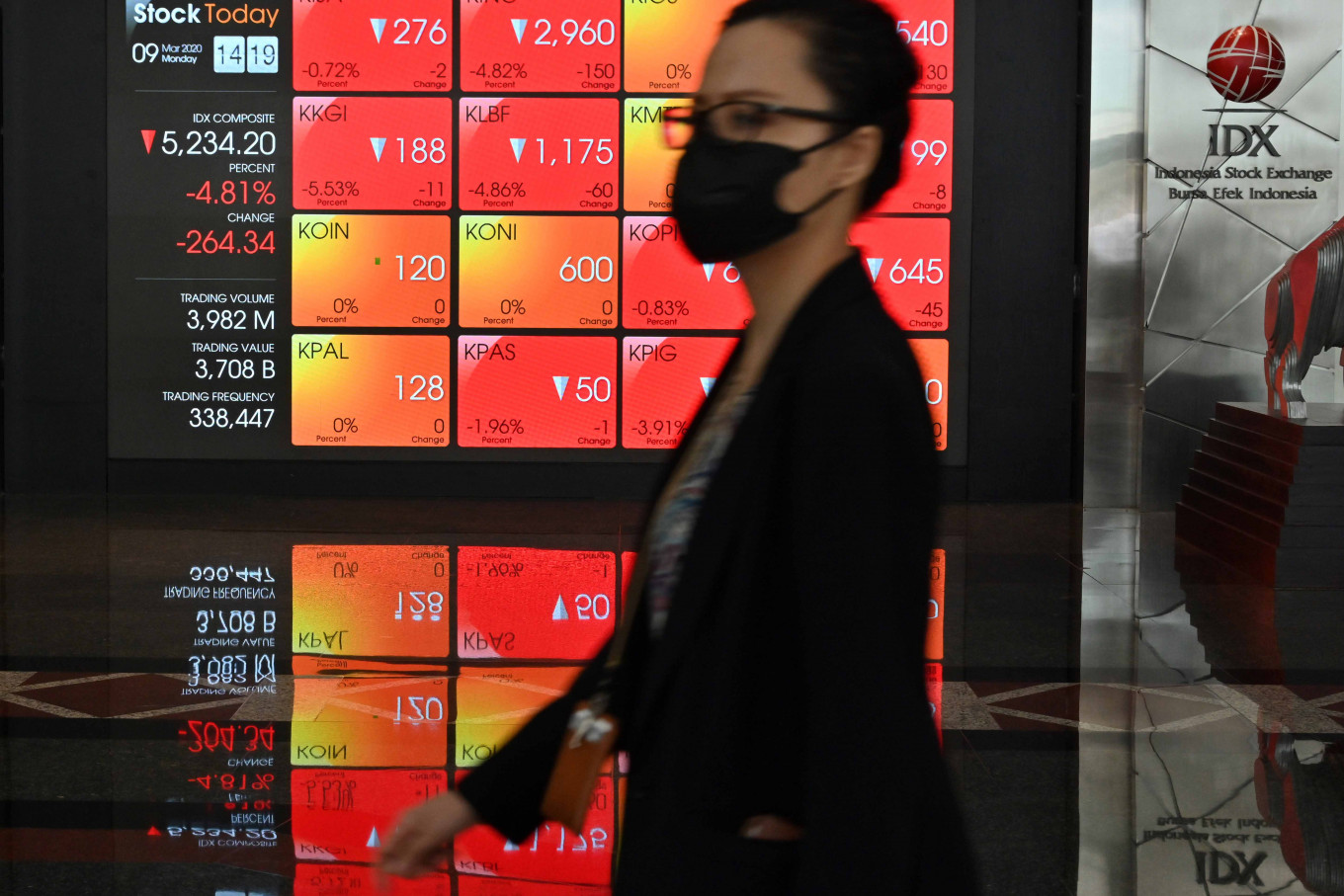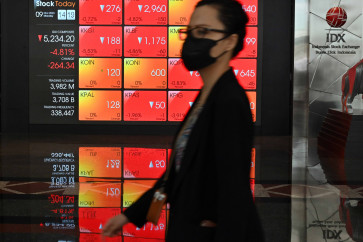Popular Reads
Top Results
Can't find what you're looking for?
View all search resultsPopular Reads
Top Results
Can't find what you're looking for?
View all search resultsTaking advantage of 'temporary' market turmoil
Once the new coronavirus stops spreading, companies with a strong business model, a large competitive advantage and low leverage will survive and recover well, and so will the prices of their securities.
Change text size
Gift Premium Articles
to Anyone
The stock market has declined by more than 30 percent year-to-date, while the bond market has erased its entire capital gain of 2019.
It is indeed a challenging time for asset managers in the capital market, both those who work as professional portfolio managers at institutions and individuals who manage their personal or family’s portfolio.
Now we are witnessing the highest year-to-date price correction since 2008. The previous significant year-to-date correction was in 2015 when the stock market declined by almost 20 percent. The bond market that outperformed strongly in 2019, marked by the declining 10-year government bond yield from 8 percent at the end of 2018 to 7 percent at the end of 2019, has had to accept a yield increase from a low of 6.5 percent in February to over 8 percent today.
The recent sell-off in the global and Indonesian capital markets, however, is more of a price risk rather than a fundamental or valuation risk. Although the main push of the market correction, which is the new coronavirus, will affect the business fundamentals of companies, it should be temporary. As for valuation, the Indonesian stock market was trading at a discount even prior to the correction.


















